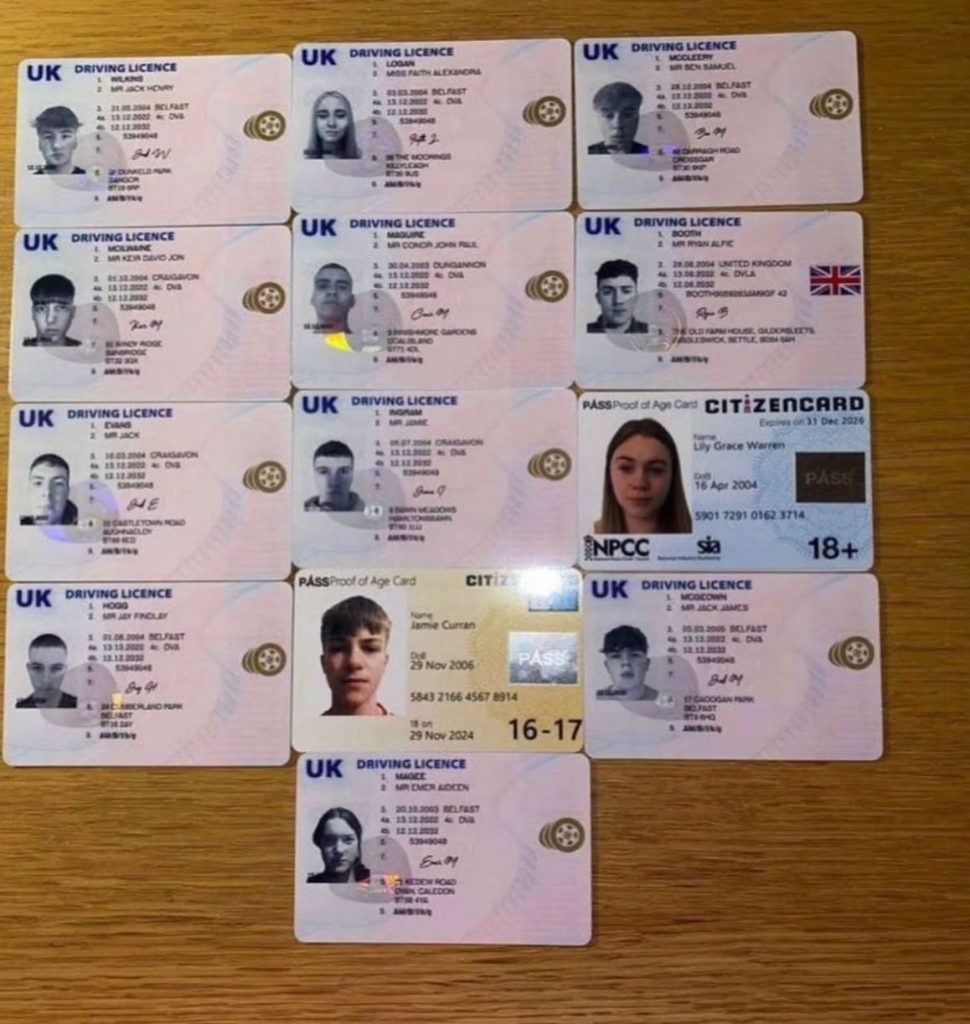Unlock Your Freedom: Why Owning a UK Driving Licence is a Game-Changer
Imagine this: spontaneous weekend getaways, the ease of running errands without relying on public transport timetables, or the sheer convenience of being able to pick up a friend or family member at a moment’s notice. For many, this level of freedom and flexibility is intrinsically linked to one thing: a UK driving licence.
Whether you’re a lifelong resident, a new arrival, or simply considering the benefits, obtaining a UK driving licence opens up a world of possibilities. It’s more than just a piece of plastic; it’s a passport to independence, opportunity, and a more efficient way of navigating life.
In this comprehensive guide, we’ll delve into the compelling reasons why owning a UK driving licence is a valuable asset, exploring the practical, personal, and even professional advantages it brings. We’ll also address some common questions you might have along the way.
The Unshakeable Pillars of Driving Licence Ownership
Let’s break down the key benefits that make a UK driving licence so desirable:
1. Unparalleled Personal Freedom and Independence
This is arguably the most significant advantage. A driving licence empowers you to:
- Explore at your own pace: No longer are you beholden to bus routes or train schedules. Fancy a last-minute trip to the coast? Want to discover quaint villages off the beaten track? Your car is your chariot, ready to take you wherever your heart desires, whenever you choose.
- Conquer the daily commute: If you live further from your workplace, or if public transport options are limited or inconvenient, a driving licence can transform your commute from a stressful ordeal into a manageable journey. Imagine reclaiming that lost time for an extra hour of sleep or a more relaxed start to your day.
- Effortless errands: Grocery shopping, visiting the doctor, or picking up prescriptions becomes a breeze. No more lugging heavy bags on crowded buses or waiting for the next service.
- Spontaneous socialising: Meeting friends for dinner in a different town? Offering to drive a friend to the airport? Your licence makes you the ultimate wingman (or woman!) for all your social engagements.
- Support for family and friends: The ability to drive means you can readily assist elderly relatives, offer lifts to children, or simply be there for loved ones in a time of need.
2. Enhanced Career and Employment Opportunities
In today’s competitive job market, a driving licence can be a significant differentiator. Here’s how it can boost your career prospects:
- Access to a wider job market: Many jobs, especially those outside major urban centres, require you to have your own transportation. By having a licence, you open yourself up to a much larger pool of potential employers.
- Essential for certain roles: Many professions inherently involve driving. This includes roles in:**
- Delivery services: Couriers, parcel delivery drivers, food delivery riders (often requiring a moped/motorcycle licence, but a car licence can be a precursor or a broader qualification).
- Sales and field-based roles: Representatives who travel to meet clients.
- Trades and services: Plumbers, electricians, gardeners, and other tradespeople often need to transport tools and equipment.
- Healthcare and social care: Community nurses, domiciliary care workers who visit clients in their homes.
- Emergency services: While specialised, a driving licence is a fundamental requirement for many roles within these sectors.
- Logistics and transportation companies: Obvious, but worth mentioning the vast array of opportunities.
- Increased reliability and punctuality: Being able to drive yourself to work significantly reduces the risk of being late due to public transport delays. This demonstrates reliability to potential employers.
- Potential for higher earning potential: As mentioned, certain roles requiring driving may offer higher salaries due to the added responsibility and skill involved.
3. Practicality and Convenience in Everyday Life
Beyond the big picture, a driving licence simplifies countless day-to-day scenarios:
- Moving house or carrying large items: Need to pick up furniture from IKEA or transport belongings to your new home? A car is indispensable for these tasks.
- Holiday travel flexibility: While flying is common, road trips offer a unique way to experience the UK. Having a licence allows you to plan and execute your own driving holidays, complete with scenic routes and spontaneous detours.
- Dealing with emergencies: In a medical emergency or a sudden need to get somewhere quickly, having a car readily available can be a lifesaver.
- Transporting pets: Taking your furry friends to the vet or on holiday becomes much easier and less stressful with your own vehicle.
4. Building Confidence and Life Skills
The process of learning to drive and passing the tests is an achievement in itself. It’s an opportunity to:
- Develop new skills: Learning to operate a vehicle safely and responsibly involves a range of skills, from spatial awareness and hazard perception to understanding road rules and regulations.
- Boost self-confidence: Successfully navigating the challenges of learning to drive and passing your tests can significantly boost your self-esteem and sense of accomplishment.
- Gain independence: For younger individuals, obtaining a licence is often a rite of passage, marking a significant step towards adulthood and independence.
Different Licences for Different Needs
It’s important to note that the UK driving licence system is tiered, catering to different vehicle types. Here’s a brief overview:
| Licence Category | Vehicle Type | Minimum Age |
|---|---|---|
| Category B | Cars (up to 3,500kg) | 17 |
| Category A1 | Lighter motorcycles (up to 125cc, 11kW) | 17 |
| Category A2 | More powerful motorcycles (up to 35kW) | 19 |
| Category A | Unrestricted motorcycles | 24 (or 20 with 2 years’ experience on A2) |
| Category C1 | Larger goods vehicles (3,500-7,500kg) | 18 |
| Category C | Heavy goods vehicles (over 7,500kg) | 21 |
| Category D1 | Minibuses (up to 16 passengers) | 21 |
| Category D | Buses (more than 16 passengers) | 24 |
Note: These are simplified categories. Specific regulations and requirements apply to each.
The Process: What to Expect When Learning to Drive
Obtaining a UK driving licence typically involves a structured process managed by the Driver and Vehicle Standards Agency (DVSA). Here’s a general outline for a Category B (car) licence:
- Provisional Licence: You must be at least 17 years old to apply for a provisional driving licence. You can apply online via the GOV.UK website.
- Learn to Drive: You can learn from a qualified Approved Driving Instructor (ADI) or with a private tutor (e.g., a family member or friend) who meets the legal requirements.
- Theory Test: This computer-based test assesses your knowledge of the Highway Code, hazard perception, and traffic signs.
- Practical Driving Test: Once you’ve passed your theory test and feel confident with your driving skills, you’ll book your practical test. This assesses your ability to drive safely and independently in various road and traffic conditions.
- Full Licence: Upon successfully passing your practical test, you’ll be issued with a full driving licence.
Frequently Asked Questions
Q1: What are the eligibility requirements for a UK driving licence?
You generally need to be at least 17 years old to drive a car (Category B licence) and hold a provisional licence. You must also meet residency requirements and be able to read a car number plate from 20 metres.
Q2: How long does it take to get a UK driving licence?
This varies greatly depending on your learning pace, how often you practice, and the availability of theory and practical test slots. Some people pass within a few months, while others may take a year or longer.
Q3: Can I drive in the UK with a foreign driving licence?
This depends on where your licence was issued. Visitors from certain countries may be able to drive for a limited period with their existing licence. If you’re planning to reside in the UK long-term, you may need to exchange your licence or take a UK driving test. It’s crucial to check the official GOV.UK guidance for the most up-to-date information.
Q4: Is learning to drive expensive?
The cost can add up, typically including the provisional licence fee, theory test fee, practical test fee, and the cost of driving lessons. The price of lessons varies by region and instructor.
Q5: What happens if I don’t have a driving licence and drive illegally?
Driving without a valid licence is a serious offence and can result in significant fines, penalty points on your record, disqualification from driving, and even imprisonment in some cases.
Conclusion: Invest in Your Future, Embrace the Open Road
Owning a UK driving licence is a significant step towards a more autonomous, convenient, and opportunity-rich life. From the simple pleasure of spontaneous road trips to the tangible benefits it brings to your career, the advantages are clear and far-reaching.
While the journey to obtaining your licence requires dedication and effort, the rewards are well worth the investment. So, if you’re looking to unlock a new level of personal freedom and broaden your horizons, consider taking the wheel and embarking on the path to getting your UK driving licence. The open road awaits!

